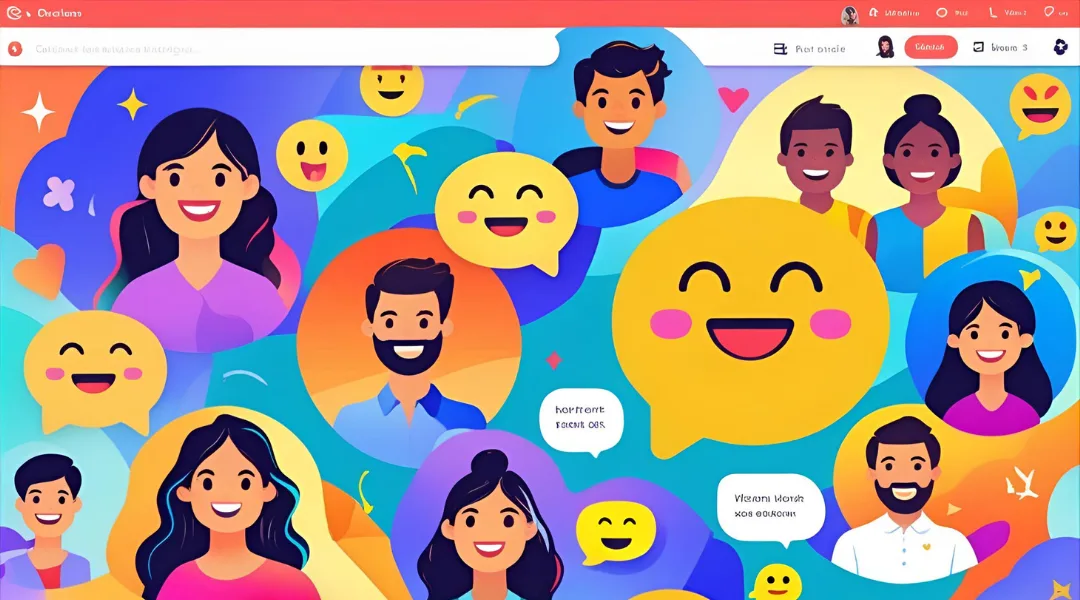Omegle is a widely recognized platform that enables users to engage in anonymous chats with strangers from all around the globe. Launched in 2009, it has garnered significant popularity due to its simplicity and lack of registration requirements, allowing users to connect quickly through text, voice, or video chat. However, the platform's reliance on Adobe Flash Player for its functionalities has raised concerns over the years. Flash was integral to providing an interactive experience for users, but the technology itself was fraught with security vulnerabilities and performance issues.
As of December 31, 2020, Adobe officially discontinued Flash Player, leading to the shutdown of numerous applications that utilized it, including numerous features of Omegle. This discontinuation presented a challenge for both the platform and its user base, as many unrestricted online chat experiences relied heavily on Flash technology. When faced with the withdrawal of such a major technology, the necessity for the development of browser-based Omegle alternatives became apparent. Users seeking an Omegle alternative without Flash would require an accessible, secure, and efficient means of engaging in online conversations.
Instead of relying on outdated technology, the emergence of Omegle alternatives that are browser-based has paved the way for enhanced user experiences. These alternatives provide similar functionalities while ensuring that connectivity remains seamless across various devices and platforms. The shift towards technologies that do not rely on Flash has not only improved accessibility but also addresses security concerns associated with older systems. As a result, users can enjoy engaging in Omegle browser chat without the hindrances previously faced, leading to a more modern and enjoyable interaction. The evolution of this platform underscores the importance of adapting to technological advancements for better user satisfaction.

In the rapidly advancing digital landscape, the transition from traditional chat platforms to modern browser-based alternatives, particularly those that do not rely on Flash, brings forth numerous advantages for users. One of the notable benefits of utilizing browser-based Omegle alternatives is enhanced security. Modern platforms are designed with robust security measures to protect user data and privacy. Unlike Flash-based services, which can be more prone to vulnerabilities, new alternatives often incorporate encrypted connections, ensuring safer interactions.
Furthermore, improved performance is a significant factor for users considering browser-based Omegle alternatives. These platforms generally employ more efficient coding techniques and are optimized for speed, resulting in less buffering and lag during chats. This is crucial for users seeking a seamless chatting experience, as delays can hinder communication. Not only do these alternatives provide faster load times, but they also tend to consume less system resources, enabling smoother operation across a variety of devices.
Cross-device compatibility is another compelling benefit that modern browser-based chat platforms offer. Unlike their Flash counterparts, which may have limited effectiveness on mobile devices or specific operating systems, browser-based alternatives are designed to function across multiple platforms seamlessly. Users can easily access these alternatives through various web browsers without needing additional software, facilitating a hassle-free chatting experience whether on a desktop, tablet, or smartphone.
The ease of access is perhaps one of the most appealing features of using these new platforms. Users can quickly join and log into the chat without complicated setups or downloads, making it convenient to connect with others. This usability ensures that engaging in spontaneous conversations through an Omegle browser chat experience remains straightforward and enjoyable. In conclusion, the benefits of utilizing browser-based Omegle alternatives without Flash highlight the importance of adopting modern technology for enhanced security, performance, and accessibility.

As the landscape of online chatting evolves, many users are in search of browser-based Omegle alternatives that offer a safe and engaging experience. Among the most recognized alternatives is Chatroulette. This platform stands out due to its simple interface that allows users to easily connect with strangers through video or text chat. The site employs a random matching system similar to Omegle, making it appealing to those who prefer spontaneity. However, it is important to note that Chatroulette has faced criticisms for allowing inappropriate content, prompting the implementation of stricter guidelines and reporting features to enhance user safety.
Another noteworthy option is Tinychat, recognized for its ability to host larger groups in video chat rooms. Users can create their own rooms or join existing ones, making it a versatile platform suitable for various types of communication. The user interface is intuitive, adding to its attractiveness as an Omegle alternative without Flash. Tinychat encourages creativity by allowing users to personalize their chat rooms, although it is crucial to remember that moderation policies vary, thus affecting user experience and safety.
Emerging platforms such as Chatrandom and Ome.tv are also gaining traction. Chatrandom features a random chat function with optional filters based on users' preferences. This enables a more tailored way to connect while ensuring a degree of safety by allowing users to report misconduct. Similarly, Ome.tv employs a moderation team to oversee chat activity, aiming to provide a secure environment for users. Both of these services prioritize community guidelines, aiming to ensure that personal safety and respectful interactions remain a central focus.
When exploring these browser-based Omegle alternatives, potential users should consider their features, user interface, and safety measures. Each platform offers distinct advantages, ensuring that users can find a chat service that aligns well with their needs and preferences.

Engaging in anonymous chatting can be both exciting and risky, especially on platforms like browser-based Omegle. Users need to prioritize their safety while participating in these online conversations. Here are some essential tips to ensure a secure experience while using Omegle or any other Omegle alternative without Flash.
First and foremost, it is crucial to protect your personal information. Avoid sharing details such as your full name, address, phone number, or any identifiable information that could link back to you. When using an Omegle browser chat or an Omegle alternative browser-based platform, remember that the lack of identification does not mean absolute safety. Consider utilizing a pseudonym when engaging with others to further shield your identity.
Moreover, it is important to recognize red flags in conversations. Be cautious if the person you are chatting with asks for personal information or tries to pressure you into sharing sensitive details. If the discussion becomes uncomfortable or inappropriate, it is advisable to end the chat immediately. Users should also familiarize themselves with the reporting mechanisms available on these platforms, as this can help maintain a more respectful environment.
Understanding privacy settings is another fundamental aspect of safe online chatting. Familiarize yourself with the features available on the platform you choose, as they may allow you to manage chat settings more effectively. Browser-based Omegle and other alternatives typically provide options for blocking users, disabling your camera, and hiding your IP address. Taking advantage of these features can significantly reduce potential risks.
By following these tips and approaching anonymous chatrooms with caution, users can create a safer online community while enjoying the engaging experiences that platforms like Omegle browser login and join offer. This mindful approach enhances the overall quality of interactions, enabling users to connect with others without compromising their privacy.